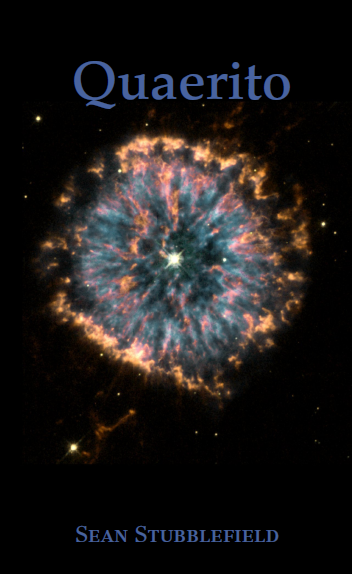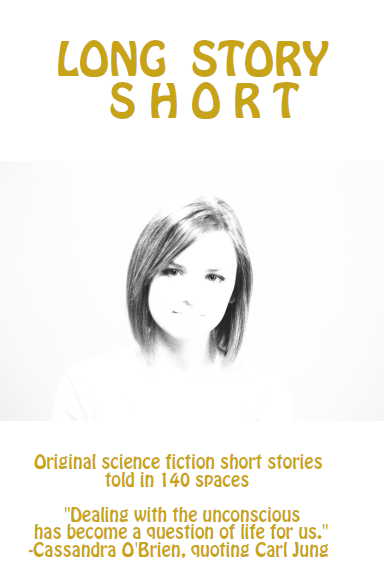When asked, Jack Harkness stated that the only thing that would have convinced him to open the rift over the Torchwood hub in Cardiff was the right kind of Doctor.
Doctor Who fans have a way among themselves of denoting which Doctor—which version of the Time Lord—is “their” Doctor. Which Doctor did they first meet?
The question of which incarnation of Doctor Who is “my Doctor” does not have an easy answer. Because I came to the Doctor at two different times during my life.
I first met The Doctor when he was played by Tom Baker—known as the fourth Doctor. Not familiar with any other Doctor, I had no basis for comparison, as to who or what The Doctor was. Or was about, really.
Note that this innocuous introduction was before I could be considered a legitimate science fiction fan. I was relatively new to sci-fi fandom in the ‘80s.
I liked the character and I liked the show, but I didn’t manage to really get “into” it.
I occasionally saw the fourth Doctor episodes on PBS, but I was never enthusiastic about the series.
I tried to remember to watch the show when it aired… but if I missed an episode, I was not bothered.
Missing an episode of Star Trek: The Next Generation, however, was a huge disappointment for me.
This viewing pattern would continue through all the Doctors since.
My disinterest was no reflection on the series, the other incarnations or the actors… but on me and my lack of sufficient sophistication to properly appreciate Doctor Who… at that time in my still nascent geekness.
By the time the eighth incarnation of the Doctor was introduced in that debacle of a TV movie (through no fault of Paul McGann), I had retained enough latent interest (and curiosity), as well as gained enough sophistication to grant this renewal benefit of the doubt and give it a try. After that embarrassment, Doctor Who went away for a while. (The movie didn’t give me much to work with in determining if this could be my Doctor. However, finding the audio dramas and the Doctor Who Project of virtual seasons revealed that he easily could have been my Doctor, if not discovered after I already met the Ninth Doctor. So Eight defaults to my third favorite.)
The next time I met The Doctor was in 2005, when the dormant franchise got renewed and re-envisioned.
With Christopher Ecceleston as Doctor number nine, this regeneration became what I consider MY Doctor.
But not at first.
Excited about the possibilities—not just of new Who, but a new sci-fi series, I eagerly watched the premier episode…
Tentatively optimistic. Only to be less than impressed; and, I admit, a little angry. I despise wasted opportunities; which is what I thought this was, back then.
I loved the character and what Eccleston did with the role. But the story line of that pilot episode was just… so… bad.
I really expected and hoped for much more. This new Doctor Who series did not make a good first impression on me.
But this was before I discovered not to trust first impressions as definitive or conclusive.
Before I had learned the wisdom of giving a new show a chance (even a second chance)—and a few episodes-- to develop and find itself. Before deciding to give up on it or continue. This new Doctor Who series would-- to my gratitude and relief-- turn out to be a TV series that helped me attain such wisdom, and recognize the value in it.
I had crudely and hastily decided to abandon the revived series before the first episode ended.
That was the last straw, the last of Doctor Who I’d ever see.
Until a friend of mine happened to watch an episode he had on his computer while I was with him, called The Empty Child.
A revolutionary and revelatory experience, that single episode changed everything for me, regarding Doctor Who. Everything I thought and assumed I understood about Doctor Who.
This remarkable, single episode made me a fan.
Or, more precisely, that single episode incited a fascination that made me want to see what I had been missing so far in the new series.
And THAT is what made me a fan.
Doctor Who is capable of THIS caliber of storytelling? Tell me more!
And to think I almost missed out.
So enamored, I even made an effort to go back and try to watch most of the preceding episodes of Classic Who, plus every episode of New Who since that phenomenal encounter with the ninth Doctor.
Just like companions in the show, if you are ready, willing and serendipitously catch The Doctor at the right time (as a viewer), he can change your perspective, and change you for the better.
I’ll always have an affection for the fourth Doctor; and indeed list him as my second favorite.
But only because Eccleston’s Doctor, the ninth, made me a devoted Whovian. He showed me the greatness that Doctor Who is truly capable of.
That is how and why he became MY Doctor.
Getting the right actor to play this character is always a vital component, but especially for bringing the show back in 2005. And Christopher Eccleston was an excellent casting choice.
If not for the terrible script of the TV movie in 1996, Paul McGann would have been the actor to bring the franchise back, years earlier.
But then, we never would have gotten Eccleston, Tennant and Smith. A terrible script is what almost cost me discovering and loving the New Who series. More than the fantastic stories that came after the new pilot, it was Eccleston’s performance that really endeared this new Doctor to me. McGann and Eccelston both demonstrate that a great actor cannot save a bad script, or redeem a weak story.
While I was sad and disappointed that Eccelston chose to leave after only one season, citing unpleasant working conditions, I can understand.
Considering the trials and tribulations of re-creating and re-invigorating the Doctor Who series, Eccelston was put in an unenviable position of being the face of the new show. The pressure on him to portray this iconic character and not disappoint the fans-- after so many years off the air-- must have been immense. The scrutiny—by the fans, the media and the studio suits-- must have been intense.
Behind the scenes logistics and expectations must have surely been frantic, hectic, nerve wracking… trying establish protocols and figure out how to make this new series.
Eccelston was essentially a guinea pig, suffering through the working out of all the kinks and bugs inherent in rebuilding this massive franchise, with an entirely new crew and staff. No doubt Eccleston bore the brunt of the stress.
But if he had to leave so soon, at least he was able to go out with a magnificent departure story.
And it is the tone of that amazing exit that nudged some nebulous impression in the back of my mind regarding the nature of Time Lord regenerations.
The ninth Doctor’s attitude about his impending ending sparked the beginning of an awareness in me that there is something more to the regeneration process than I ever realized; more than the series had ever led us to believe.
It was a profound melancholy sadness expressed by Doctor nine about having to regenerate. Which is a reaction to his death that we’ve never seen from any previous Doctor.
As if the Doctor himself, with his transition from eighth incarnation to ninth, had become aware of what I was struggling to identify. Precisely what I subtly detected in Eccelston’s performance during his death scene eluded me for a long time.
If, as The Doctor always claimed, he wasn’t really dying, merely changing, then why is he so unusually reluctant and regretful?
Not until Doctor ten regenerated— exhibiting a profound sense of loss, sorrow and grief-- was I able to fully recognize, comprehend and articulate that awareness.
...to be continued...
Thursday, May 9, 2013
Subscribe to:
Post Comments (Atom)





















No comments:
Post a Comment